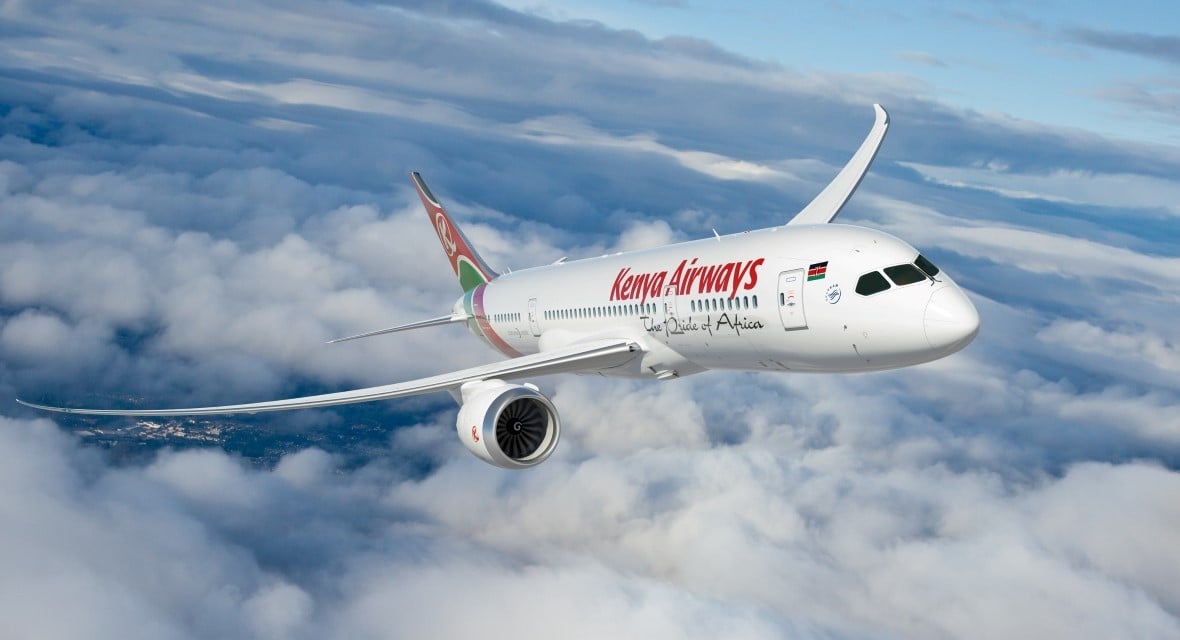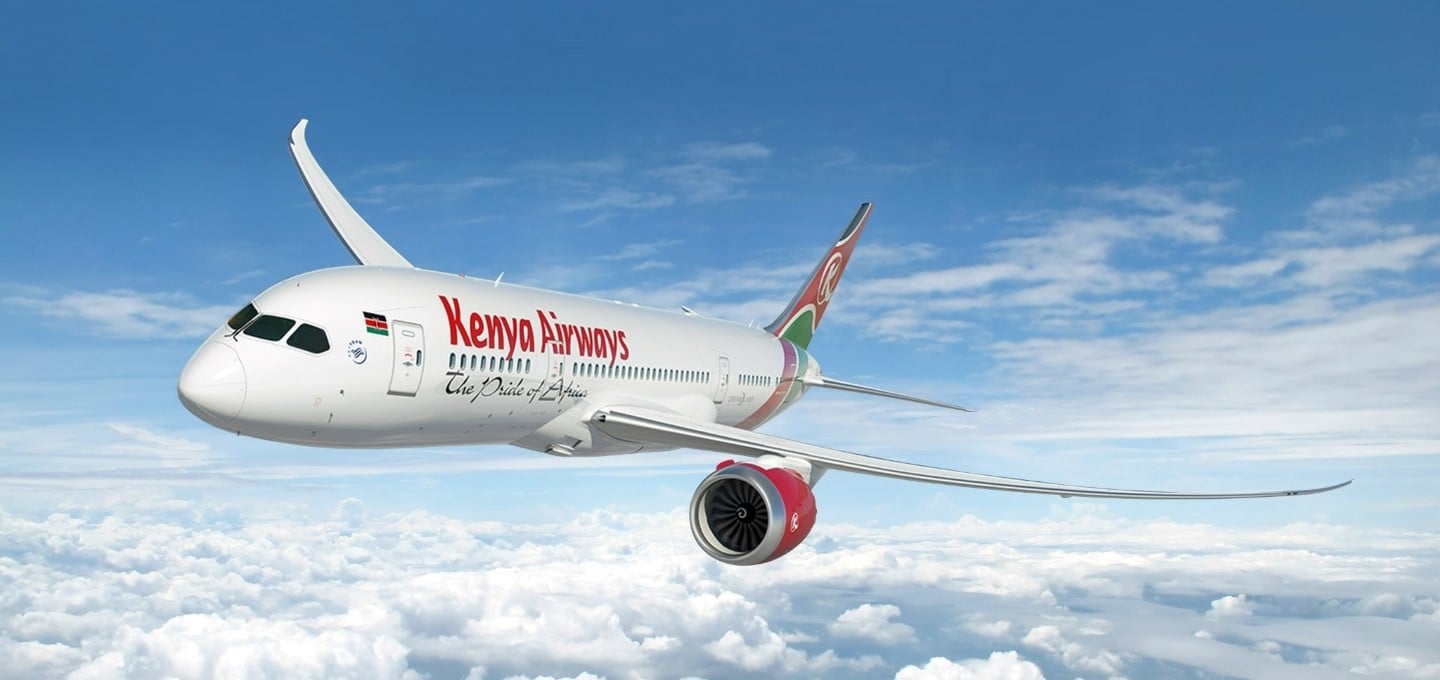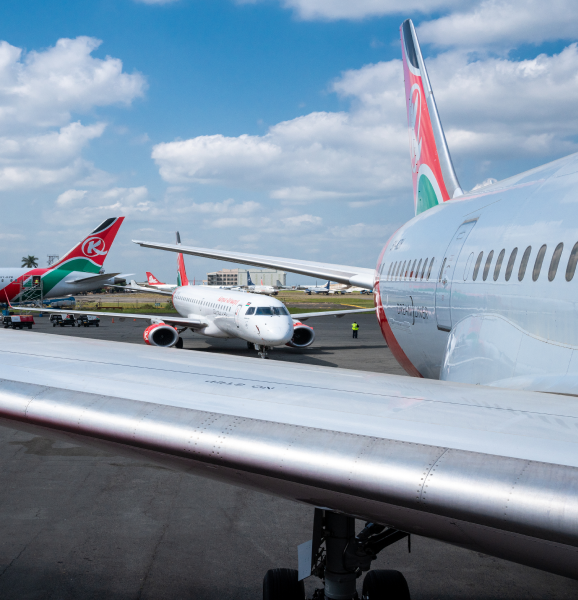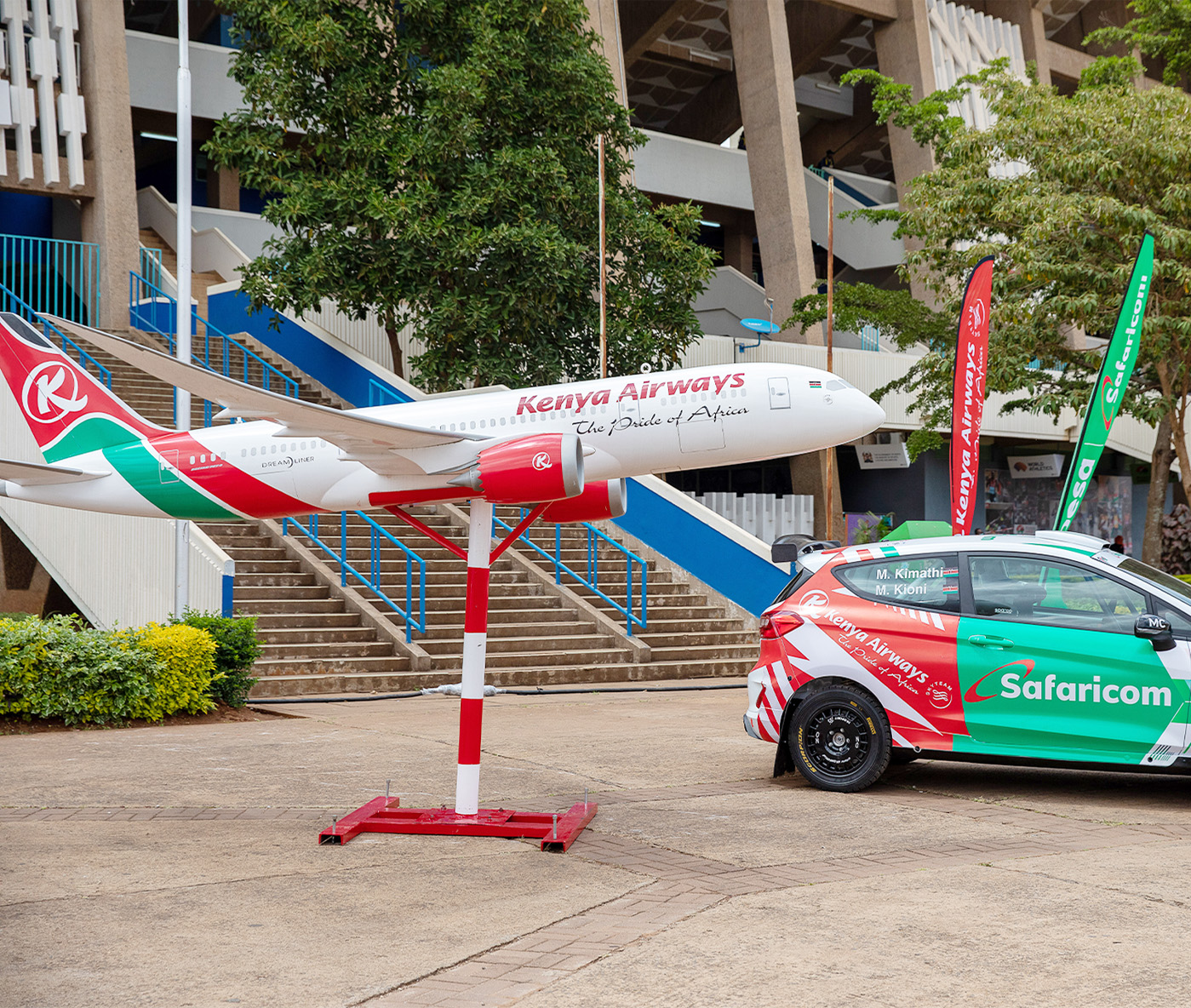01 Oct 2024
Customer Updates
News
Kenya Airways launches key sustainability and operational efficiency projects to cut operational costs, and enhance work efficiency
The launch of the Pyro-Diesel Plant, Water Bottling Expansion, and the transformation of Msafiri House to drive cost savings and environmental responsibility.

Nairobi, Kenya, 01 October 2024-- Kenya Airways (KQ) has embarked on a journey of innovation and long-term sustainability of its business with the launch of three strategic projects. These initiatives are designed to advance sustainability, paving the way for a more promising future.
These initiatives, which include the Pyro-Diesel Plant, the expansion of the Water Bottling Plant, and the transformation of Msafiri House into a centralized operations hub, are part of a larger, sustainability and strategic recovery plan, Project Kifaru.
Regarding the new initiatives, Kenya Airways CEO Allan Kilavuka remarked, "These three bold projects align with Project Kifaru, our strategic recovery plan, which prioritizes financial sustainability, customer focus, and environmental responsibility. They also demonstrate the airline's commitment to reducing its environmental footprint, improving operational efficiency, and contributing to Africa's prosperity through responsible corporate practices."
According to Kenya Airways Chief Operating Officer, the water bottling plant and the Pyro-Diesel Plant are key components of Kenya Airways’ sustainability efforts, and an innovative approach to cutting costs and reducing reliance on traditional fossil fuels while significantly lowering carbon emissions.
“The Water Bottling Plant, with a capacity to produce approximately 4,500 litres per day, reduce Kenya Airways’ reliance on external suppliers and significantly lower water procurement costs while generating additional revenue through potential water sales. With a production capacity of 700 to 1,000 liters of diesel, the Pyro-Diesel Plant will make a tangible impact on our operational costs, reducing fuel expenses and decreasing the environmental footprint of our ground operations. This means that we are not just cutting costs for short-term gains; we are building a more resilient and sustainable future for Kenya Airways” says George Kamal.
This dual benefit underscores Kenya Airways’ commitment to sustainability and financial prudence. The plants are expected to create additional employment opportunities as they scale up operations, further supporting Kenya Airways’ commitment to sustainability and community development.
As part of significantly enhancing operational efficiencies, Kenya Airways has transformed its property, Msafiri House, near its headquarters into a centralized Operations Control Centre (OCC) for its flight crew, inflight management and fleet management. This strategic move will streamline operations, improve team collaboration, and reduce travel time between different departments, thereby enhancing work efficiency and employee satisfaction while delivering significant cost savings by reducing airport access, parking charges, and rent expenses. Furthermore, Msafiri House will alleviate congestion at Kenya Airways' Approved Training Organization (ATO) by providing additional training facilities, which are expected to generate additional revenue through increased training capacity.
Related news
01 Oct 2024
Customer Updates
News
The launch of the Pyro-Diesel Plant, Water Bottling Expansion, and the transformation of Msafiri House to drive cost savings and environmental responsibility.

01 Oct 2024
Customer Updates
News
The launch of the Pyro-Diesel Plant, Water Bottling Expansion, and the transformation of Msafiri House to drive cost savings and environmental responsibility.

19 Aug 2024
Investor Relations
Financials
This is the first time Kenya Airways is reporting a profit after tax since 2013.

26 Mar 2024
Financials
News
Nairobi, 26th March 2024 - Kenya Airways' ongoing recovery and turnaround initiatives have resulted in the airline recording an operating profit of Ksh 10.5 billion for the year ended December 31, 2023 compared to an operating loss of Ksh 5.6 billion in the prior year, representing a 287% growth.







